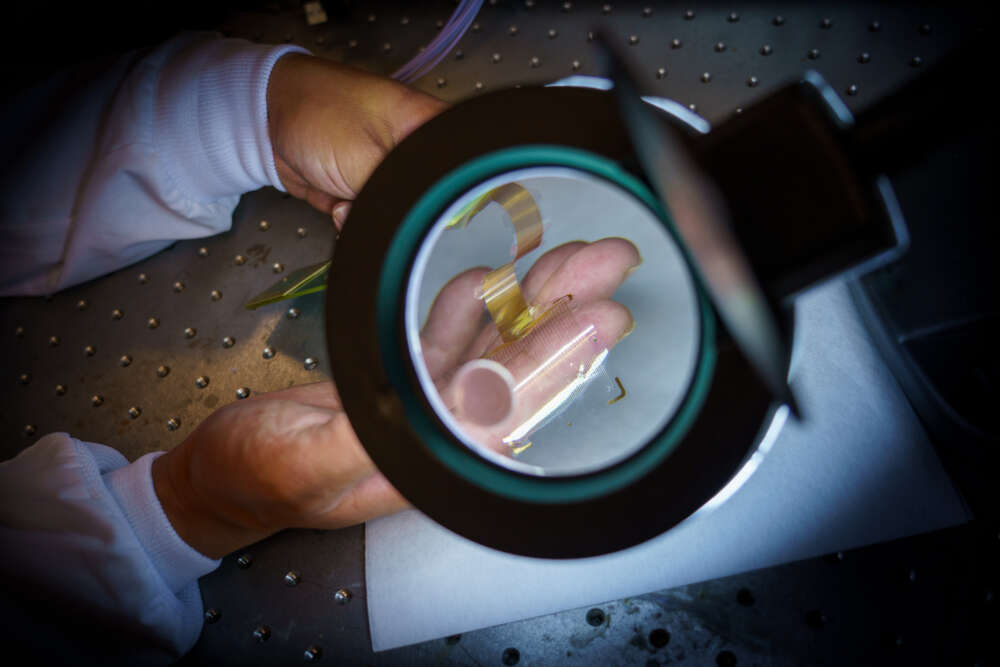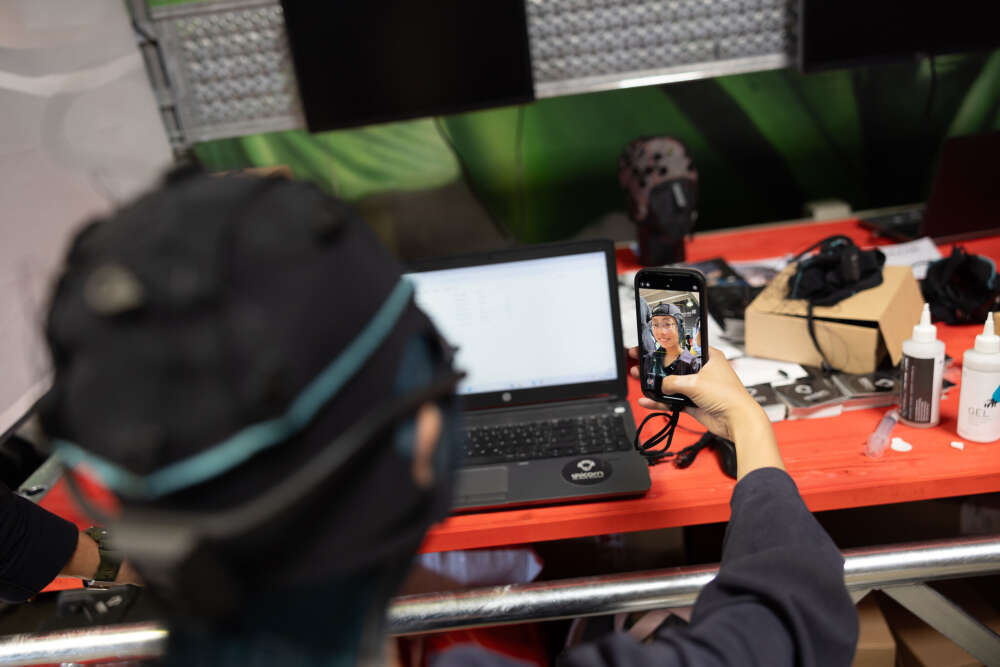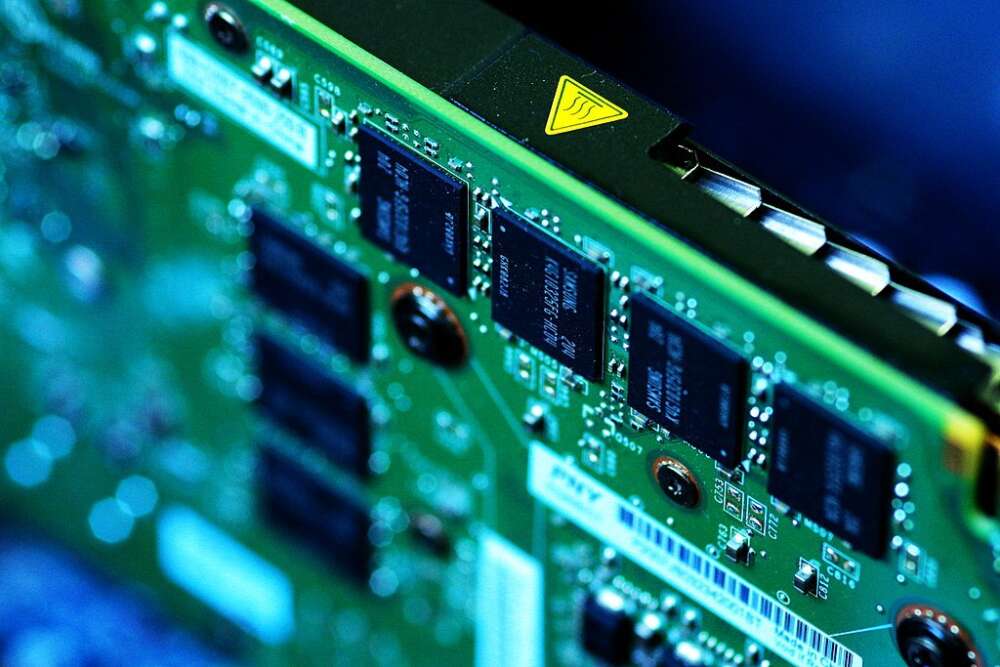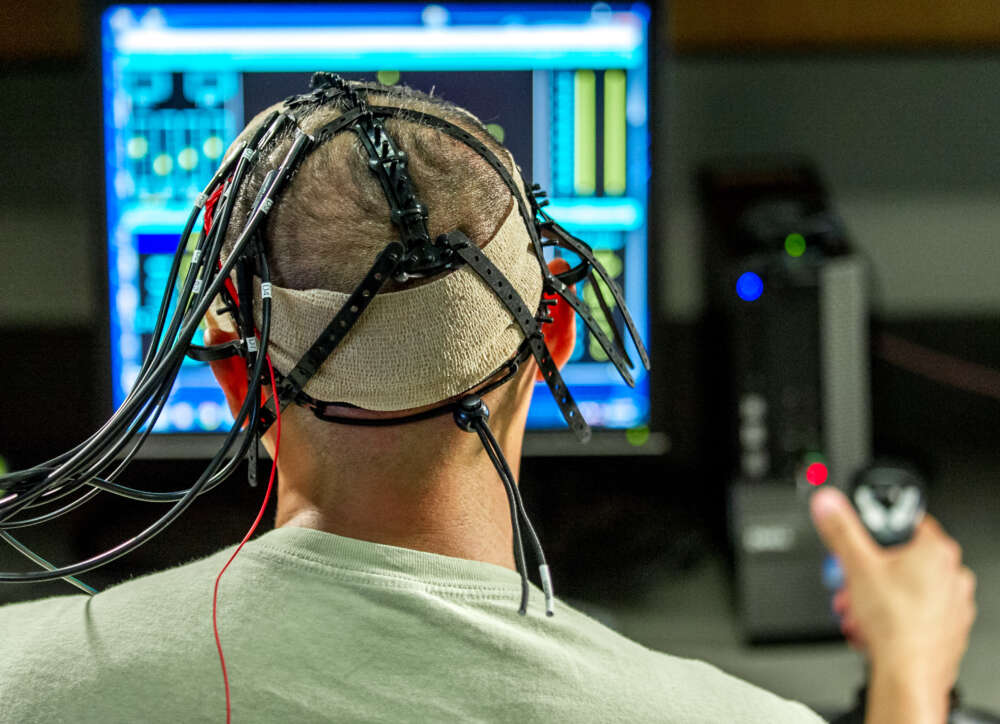Action Potentials
Neurotechnology, Brain-Computer Interfaces, and Implications for Germany’s and Europe’s Foreign & Security Policy

Neurotechnology comprises a range of devices, some implantable into the human body and others applied externally, that sense and stimulate activity in the brain and the adjacent central nervous system. So far, such devices have mainly been developed for medical purposes, for example, to restore movement and speech after severe strokes or to alleviate mental health conditions. However, the field is evolving rapidly and has the potential to revolutionize how humans perceive the world, process information, and interact with each other, as well as with computers, artificial intelligence (AI) systems or robots. Ultimately, brain-computer interfaces (BCIs) that establish a direct link between the brain and machines might become a platform technology comparable to smartphones today.
Against the backdrop of intense global competition over technology leadership, this report examines how advances in neurotechnology matter for Germany’s and Europe’s foreign and security policy.
It highlights the expanding range of real-world use cases and the likelihood that progress will further accelerate in the future, with innovation and adoption poised to enter a mutually reinforcing dynamic once a certain tipping point is reached.
The analysis further considers regional variation in the global neurotechnology ecosystem. It stresses how the United States and China are pushing ahead, each combining strategic state intervention and private entrepreneurship in distinctive ways. Meanwhile, Europe is strong in academic research but lags in the translation to practical use and commercialization.
Based on these assessments, the report proposes 10 recommendations for Germany’s and Europe’s foreign and security policy, structured along three widely agreed-upon policy aims. While these recommendations cover a range of complex issues, one consistent thread is that focusing on the regulation and governance of neurotechnology both domestically and globally is important, but it is not enough. Foreign and security policy also has an important role to play in fostering responsible innovation and adoption, both to realize the major opportunities provided by this technology and to build and sustain influence over global developments.
1. Enhancing Defense and Deterrence
Neurotechnology has obvious potential for military use on the battlefield and beyond. Military actors are deeply involved in the regional neurotechnology ecosystems in the US and China, targeting enhanced performance, brain-machine integration and even potential offensive applications. In contrast, despite the widely acknowledged need to better defend the continent against acute security threats, Europe’s engagement with these novel possibilities remains timid and reactive.
Europe and Germany should:
- Work towards becoming leaders in the responsible military use of neurotechnology through investment in a dual-use backbone, applied research for military applications, and deepened engagement with international partners (especially via NATO).
- Develop an independent perspective on how to effectively prevent leakage of dual-use knowledge and technologies to potential adversaries and engage with the US discussion on export controls to maintain tight links between the innovation systems across the Atlantic.
- Initiate a global process toward ethically grounded norms on the military use of neurotechnology.
2. Fostering Resilience Against Dependencies and Cyber Threats
Neurotech and BCIs will likely become relevant in many areas of the economy and society. While the benefits could be significant, this also means that dependencies and chokepoints in global supply chains require attention and that devices may become targets for hostile interference. Building a strong European neurotech industry is key to addressing these concerns.
Europe and Germany should:
- Mobilize European public funding to support translational neurotech research, commercialization, and trusted solutions for critical domains.
- Establish a regular monitoring of the global neurotech ecosystem for emerging dependencies and chokepoints, as well as for signs of unfair competition.
- Clarify how existing European Union regulations apply to neurotech and review their design and implementation to reduce obstacles to research and commercialization while fostering cyber and data security in a targeted way.
- Actively invest in responsibly making anonymized neural data available for innovation in Europe.
- Promote cybersecurity-enhancing solutions in processes toward global technical standards.
3. Pursuing Shared Benefits for Society
Neurotechnology can support major advances in public health and productivity, as well as spurring innovation in adjacent fields. At the same time, its spread and adoption should be accompanied by inclusive political dialogue to avoid exacerbating social inequality and political conflict over profound ethical questions.
Europe and Germany should:
- Foster the exchange of expertise and good practices among policymakers and agencies working on neurotech, both within the EU and with like-minded countries.
- Continue actively engaging in processes toward global ethical standards and raise awareness of key issues also domestically.
These recommendations sketch a path for Germany and the EU to deal with a technology field that has not yet received widespread attention but is likely to acquire critical importance. Now is the time to act to strategically position the continent in the global ecosystem and help shape a trajectory for neurotechnology that benefits society and advances German and European security interests.
This piece is published as part of the GPPi project“Neurotechnology:
Considerations for Foreign and Security Policy,” which is funded by the
German Federal Foreign Office. The views expressed are those of the authors and do not reflect the position of the German government.
About the Authors
Jakob Hensing is a Research Fellow at GPPi. His work focuses on economic statecraft and security, with a focus on emerging technologies.
Peter Schlecht contributed to this report as an independent expert. A seasoned entrepreneur and angel investor, he has focused on the neurotechnology space for more than six years.
In an earlier version of this report, figures that included both medical and consumer neurotech companies were mistakenly described as relating only to consumer neurotech companies. This error was corrected on pages 20 and 21 on September 23, 2025.







